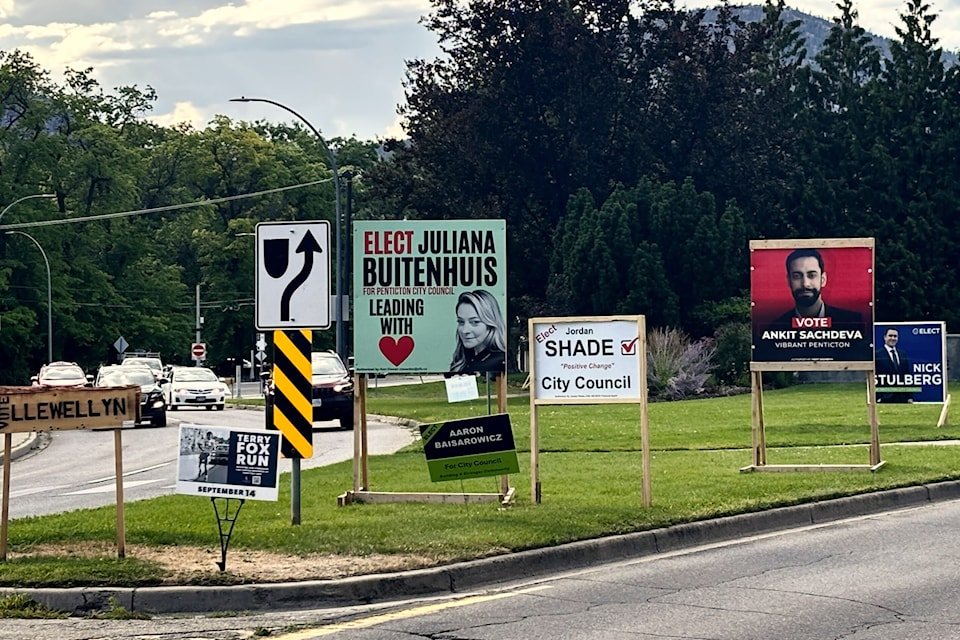Twelve candidates are in the running for Penticton’s upcoming by-election to fill the council seat left vacant after Helena Konanz stepped down. Advance voting will take place on August 13 and 14 from 8 a.m. to 8 p.m. at the Penticton Trade and Convention Centre, with the main voting day scheduled for Saturday, August 23, at the same location and hours.
All candidates were invited to answer the same set of questions and provide a brief biography. Two candidates, John Archer and Jason Town, did not send responses before the deadline. The questions asked focused on three major issues: how the city should address affordable housing, how it can improve mobility options for residents without cars or with mobility challenges, and how it can support local businesses during the current U.S.-Canada trade tensions.
Aaron Baisarowicz said the city should drastically reduce construction fees and taxes to encourage new housing projects. He argued that building more rental units is not enough to attract skilled professionals, as many prefer to own homes. Without affordable ownership options, he believes Penticton will struggle to keep long-term residents. On transportation, he stated that the city cannot be completely redesigned, noting that residents have adapted to existing infrastructure for decades. He pointed out that there are already services to help people with mobility needs but added that certain projects, such as the bike lane, have made vehicle access harder for some. On the issue of business support during trade tensions, Baisarowicz emphasized the limitations of what city council can do, stating that councillors are not equipped to solve global problems like mental health crises, crime, climate change, or international economic disputes.
While his remarks highlight a focus on practical measures within city control, other candidates have taken different approaches to these same issues. Affordable housing continues to be one of the most pressing concerns for residents, as home prices and rents rise, making it harder for people to secure stable housing. Some candidates advocate for incentives to attract developers, while others call for partnerships with higher levels of government to increase the housing supply.
Mobility and accessibility are also priorities. With more residents seeking alternatives to car travel and an aging population, there is a growing demand for better public transit, improved pedestrian routes, and enhanced accessibility features in public spaces. Opinions differ on how to balance these needs with other infrastructure projects.
The trade tensions between Canada and the United States have created uncertainty for local businesses, especially small and medium-sized enterprises. Some candidates propose initiatives to encourage local consumer spending, while others believe the city should work more closely with provincial and federal representatives to address the broader economic challenges.
Voters are encouraged to review the full list of candidate profiles to learn about each person’s experience, background, and ideas. The diversity of perspectives reflects a wide range of priorities, from economic growth to infrastructure improvements and community services. Advance voting gives residents the chance to make their voices heard early, and the final decision on August 23 will determine who will join the council to help guide the city’s policies in the coming months.

